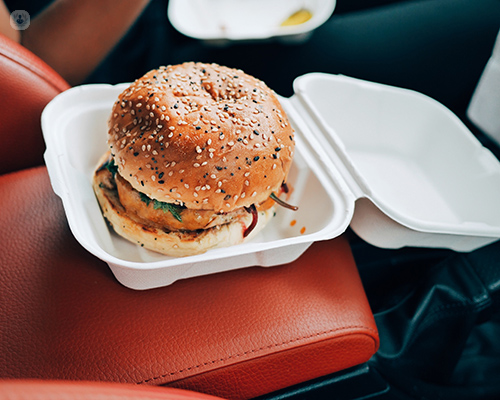Coeliac disease and gluten intolerance
Written by:Coeliac disease is a serious medical condition where the lining of the small intestine is damaged by tiny amounts of gluten (a protein found in grains such as wheat, rye, barley and oats).

What causes coeliac disease?
Coeliac disease develops when the immune system reacts abnormally to gluten, meaning people do not absorb food and nutrients properly. This can result in health problems such as malnutrition and osteoporosis. The abnormal immune response to gluten causes damage to the small intestine when the tiny, finger-like projections lining the bowel, called villi, become inflamed and flattened. This is called villous atrophy and it reduces the available surface area of the bowel to absorb nutrients from food.
What are the symptoms of coeliac disease?
People with coeliac disease can have severe symptoms, or they may have no obvious symptoms at all. Common symptoms include:
- Diarrhoea or constipation
- Weight loss
- Nausea
- Flatulence (passing wind)
- Feeling pain, cramping or discomfort in the stomach
- Feeling tired, lethargic and weak
- Iron deficiency
- Pains in the bones and joints
- Mouth ulcers
- Skin rashes or bruising easily
- Feeling irritable.
Who is most likely to develop coeliac disease?
Coeliac disease affects people of all ages and gender. It runs in families and can develop at any age, from infancy to adulthood. It is very important to be properly diagnosed with coeliac disease by a specialist because it is a serious medical condition that affects people for their whole life. If you have coeliac disease, you will have to remove all foods containing gluten from your diet.
What advice can you give to someone with coeliac disease?
If you think you may have coeliac disease, don't stop eating foods that contain gluten until after you have been diagnosed as stopping gluten means the tests are unreliable. Diagnosis involves blood tests and a small bowel biopsy (tiny samples of your small bowel will be collected by a doctor).
Coeliac disease cannot be cured, but it can be controlled with a strict, lifelong gluten-free diet. If coeliac disease is not well controlled it can lead to complications such as osteoporosis, infertility, chronic poor health, depression and teeth problems. However, early diagnosis and treatment of coeliac disease significantly reduces the risk of most complications ever occurring.


